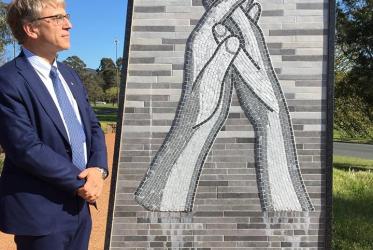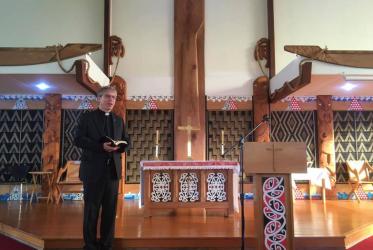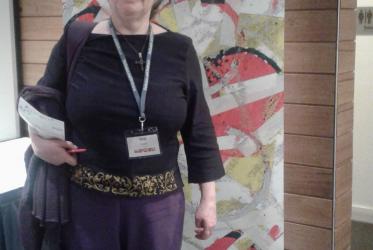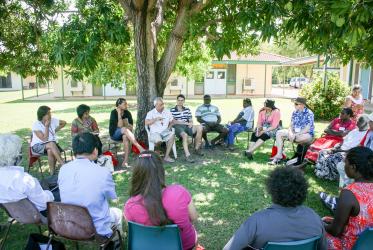Displaying 101 - 120 of 180
10 July 2017
Women’s mentoring focus of Thailand gathering
23 April 2017
“Overcoming economic injustice” vision of WCC’s Athena Peralta
23 February 2017
New videos help congregations hasten HIV response
20 October 2016
WCC general secretary visits Aotearoa New Zealand
10 October 2016
Indigenous spirituality: can it transform injustice into justice?
01 September 2016
¿Puede la espiritualidad indígena transformar la injusticia en justicia?
01 September 2016










